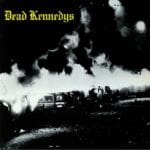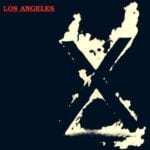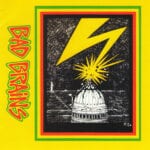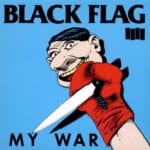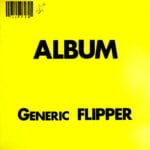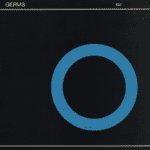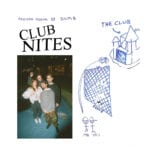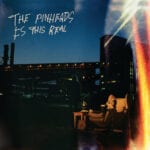CLASSIC REVIEW: DEAD KENNEDYS- Fresh Fruit for Rotting Vegetables
BEST TRACKS: Kill the Poor, Holiday in Cambodia, California Uber Alles, Ill in the Head
“Just when you think tastelessness has reached its nadir, along comes a punk rock group called ‘The Dead Kennedys’” read a San Francisco Chronicle article from November 1978, “they will play at Mabuhay Gardens on Nov. 22, the 15th anniversary of John F. Kennedy’s assassination.“ Geez, what kind of chutzpah do you need to mock America’s most tragically iconic family on the anniversary of its most notable horror? Well, the Dead Kennedys were all chutzpah; in fact, they were practically bursting at the seams to brutally mock any American institution guilty of abhorrent injustice (and of course, there are many). Though not attacking the Kennedy family directly so as to twist the magic bullet (I’m sorry), the apparent curse upon the 20th-century clan of American idealism was a perfect brand for a group whose entire existence hinged on a sardonic articulation of anarchist paragons. The Dead Kennedys were the first explicitly political American punk band. Bands like X or Black Flag may have been indirectly political in their focus on youthful alienation, but the Dead Kennedys, specifically lead singer Jello Biafra, were completely committed to calling out by name each and every faceless establishment villain who was unfortunate enough to find themselves caught in Biafra’s latex-coated crosshairs. It was not introspection; it was full-fleshed Juvenalian satire. While Black Flag was screaming about being a skate-punk burnout in LA basements, the DKs were hammering Pol Pot, Jerry Brown’s “zen fascists”, privileged college students, unmitigated capitalism, and police brutality in San Francisco’s, well, basements. Their sound was an absurd combination of screeching feedback, overly laid-back surf rock, spoken word, and performance art. Biafra, always keen on any form of the alternative spotlight, was never at a loss for intentionally aggravating pranks which furthered his desire for total demolition of post-war America. These included illegally using warped pictures of other bands for liner notes, abrasively declaring that then-Governor Jerry Brown was actually a hippie Nazi, or running for mayor of San Francisco on a platform of outlawing cars and demolishing all Government buildings. Whatever cliched pattern that today’s alternative rock falls behind in their lazy conviction of powers-that-be (ahem American Idiot) is derivative of the Dead Kennedy’s extremely meticulous establishment of punk rock as a political force. They were ideologically consistent, absolutely non-partisan, and, perhaps most importantly, fully committed to an absurdist approach to music that highlighted the very serious realities of injustice.
In 1978’s San Francisco, 20-year-old guitarist Raymond Pepperell put out an ad in “The Recycler” for bandmates for form a punk group. Two people responded: bassist (and banker) Geoffrey Lyall and poet/singer Eric Boucher. The three were rechristened as East Bay Ray, Klaus Flouride and, of course, Jello Biafra. Their first shows around the Bay Area garnered significant attention (both positive and negative) for somehow being in worse taste than even the raunchiest American punk acts. Cartoonish, catchy, and absolutely confrontational, Biafra gained infamy through his highly animated stage presence which included often dousing the audience in beer or destroying pieces of the stage. It is important to note, however, that the Kennedy’s performative violence was not out of angst, but rather part of a tongue-in-cheek attitude towards the establishment. A typical snapshot of a Kennedy’s live performance saw East Bay Ray hammering away at distorted spaghetti western riff while Biafra bellowed out how much the government wanted to kill you while kicking at the walls with a massive grin on his face. Declaring himself the band’s primary songwriter, Biafra would tape record melodies using only his voice which his band would later transcribe onto their respective instruments. Of their early written material, one song stood out for being particularly catchy and scathing. “California Uber Alles” was released Summer of 1979 as the Dead Kennedys’ first single. With military-esque drumming, bastardized surf guitar, a cheeky flamenco melody, Jello’s typical outrageous bellow, and lyrics condemning then Democratic Governor Jerry Brown as a hippie fascist, the band distilled everything in within the DKs essence into their very first recording. And while their embrace of non-power chord guitar lines and heavy political overtones was enough to set them apart from any American contemporary, it was “California Uber Alles’” subject matter which is most representative of while the Dead Kennedys were such a unique and integral group. Attacking Jerry Brown, at first, is incredibly confusing. Ronald Reagan, Brown’s predecessor as California’s governor, had just been elected president and, unsurprisingly, was incredibly unpopular among punks. Why would they go after California’s new “cool guy” Democrat as opposed to Ronald fucking Reagan? Well, simply put, the Gipper was too easy a target. Jello Biafra wanted confrontation, an interruption of American organization beyond partisan attacks on low-hanging fruit. Of course Reagan was terrible, but so was Brown. The Dead Kennedys were anarchists; attacking Reagan would be redundant and a lazy cash grab for a band whose entire ethos hinged on a dismantling of the state. And ultimately this decision was imperative for the band eventually signing a deal with independent British label Cherry Red; the DKs now had the chance to record a full length album. A whole album was given to Biafra and his band to yelp and screech about international injustice in the most sarcastic manner possible. As one would expect, it’s a lot to get through in one sitting; and as one would expect, it’s an amazing album.
“Fresh Fruit for Rotting Vegetables” opens with a fitting introduction to the listeners next 40 minutes of acerbic, macabre, and ludicrous fun: “Kill the Poor”. The song begins with massive chords reminiscent of over bloated 70s arena rock laid on top of Biafra’s lyrics concerning a government who has discovered the neutron bomb and will subsequently use it to kill all of their nation’s poor. A blistering surf-punk riff tears down its introduction and the song instantly transforms into a breakneck bounce of sing-along melodies that wouldn’t be out of place in a Disney movie. “Kill the Poor”, despite its placement at the top of the tracklist, is a pinnacle only matched by two other tracks. One of these is a crisp re-recording of “California Uber Alles” while the other is, well, probably pretty familiar to a lot of you readers. The Guitar Hero Classic: “Holiday in Cambodia”. The angst-infected alt-classic opens with an atmosphere, echoed guitar chaos lightly strewn over the unforgettably chunky, descending bass riff before erupting into the bone-chillingly excellent main riff. Churning like an unpleasant halloween acid trip, the song is undoubtedly Biafra’s most scathing performance on the album. As he attacks privileged Americans by contrasting their life with victims of Pol Pot’s Cambodian regime, the other Kennedys lock into a terrifying groove filled with bastard surf motifs and disgustingly sweet distortion. The chorus, as with any classic Dead Kennedys track, is incredibly catchy. It entices the listener to sing it to themselves when they’re aren’t even thinking of it, as if to trick them into condemning very basic pieces of American civilization. There’s a reason “Holiday in Cambodia” is still the DKs most well known song: it’s haunting, brutally honest, wholly subversive, genius, ear candy.
“Fresh Fruit for Rotting Vegetables” is the album most people immediately associate with the Dead Kennedys, and this is by no means something to complain about. Hosting three of the bands best songs and even providing insanely smart and concise parody in its filler, the album is a perfect representation of punk rock’s potential as a force of American political commentary. No punk band before the DKs came close to explicitly tackling horrendous societal hypocrisies and I don’t believe any band that has come since has done this nearly as well. In an alternate timeline without our anarchist heroes, the landscape of all American music would be undoubtedly changed.
-Cliff Jenkins

